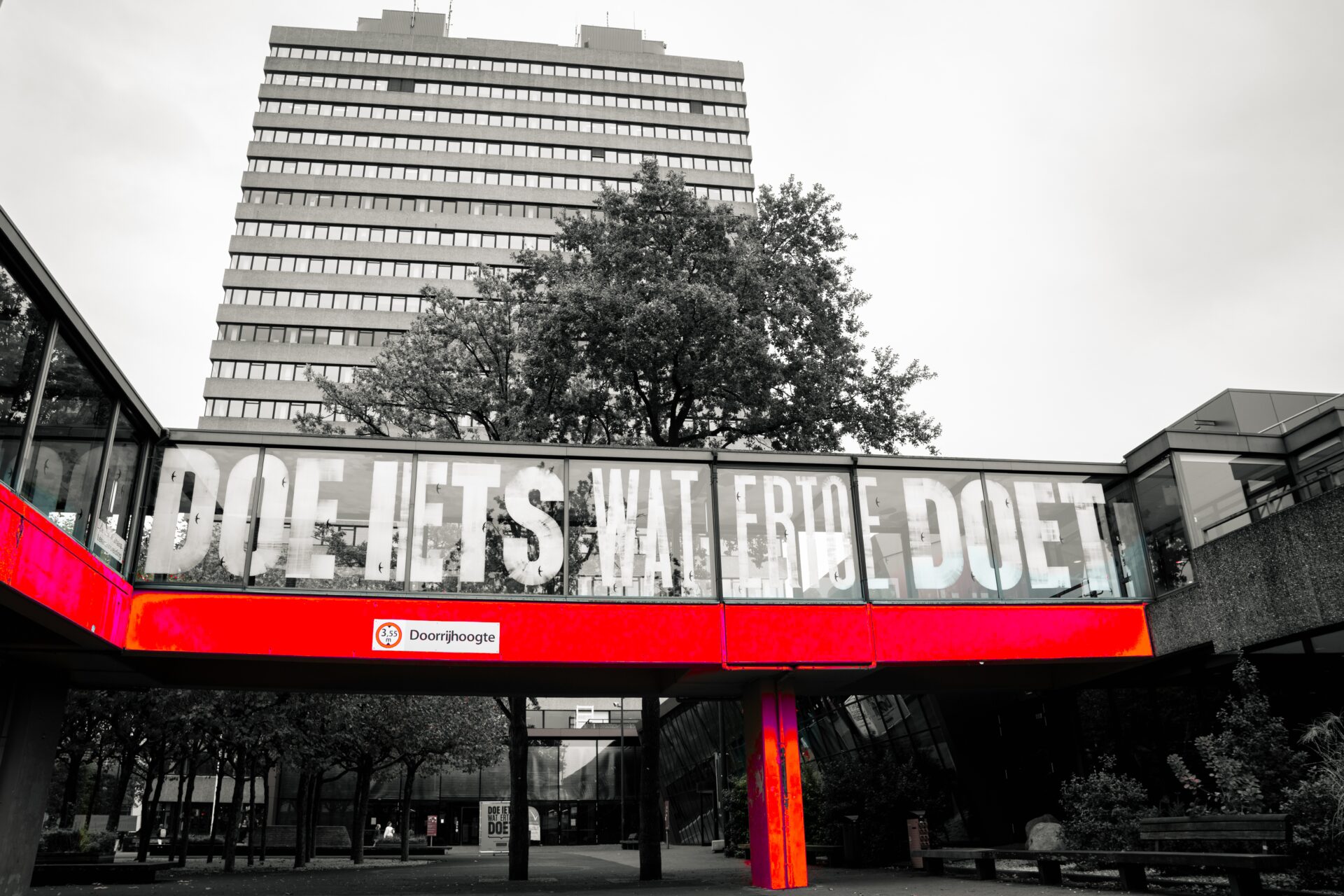In the long term, the Faculty of Arts will have around 15 percent less budget at its disposal
-
 Foto en bewerking: Johannes Fiebig
Foto en bewerking: Johannes Fiebig
After years of generous spending, Radboud University is once again facing major cuts. How are the faculties dealing with this? Offering less education is one of the ways in which the Faculty of Arts aims to manage higher education cuts.
Due to a combination of disappointing reference projections, salary increases and rising costs caused by inflation, the Faculty of Arts will eventually have 15 percent less budget at its disposal. ‘Our faculty has 22 study programmes that all teach their own courses, sometimes with only 10 or 15 students in the lecture hall’, explains vice dean of research Andre Lardinois. ‘That is not only expensive, it also creates a significant workload.’
Radboud University in overdraft
No faculty or university department will escape the cuts. But how do you handle such a project? In the coming weeks, Vox will be talking with the faculties: What can they save on, and what do they want to maintain at all costs? How much should these changes deliver and what will the staff and students notice? This is the fifth article in this series. Read all the stories here.
The faculty has therefore set itself a target of offering 10 percent fewer courses from next academic year (September 2025). However, the aim is that this will not affect students at all, or at least not much. ‘On the contrary, students will have even more choice because they will now be able to take electives from other study programmes in our faculty’, says Lardinois. ‘This also means that certain lectures will be better attended, which was the intention.’
French and German
Courses will not be subjected to generic cutbacks across the line – not all the study programmes will need to drop the same number of courses. ‘We will take a good look at what we still want to offer and what we don’t’, says Lardinois. In doing so, the Faculty Board will particularly look at duplications in courses offered and courses with few students.
However, the Faculty of Arts is clear about its wish to continue its small language studies – French and German – in collaboration with other faculties in the country. In fact, this is a mandate that has emerged from the Sector Plans. One of the ways in which the Faculty of Arts will do this is through the new bachelor’s programme Society, language and culture, in which students learn a foreign language as well as study subjects on sustainability.
‘For every vacancy, the Faculty Board considers whether the position needs filling in the long term’
As a result of budget cuts, the Faculty of Arts will eventually have to make do with fewer staff. ‘At the moment, this can probably be achieved through natural attrition’, explains Administrative Director Laura Manko. As at most other faculties, a restrictive vacancy policy applies. ‘For every vacancy, Faculty Board considers whether the position needs filling in the long term’, says Manko.
Not run themselves into the ground
Will staff be affected in terms of workload? ‘Our aim is that the workload will not increase’, says Manko. ‘If we have fewer staff, we will need to do less teaching and research. However, that is easier said than done, because we know that our staff are very passionate.’
The Faculty Board feels that scholars are welcome to publish a little less. ‘They should not run themselves into the ground because they are passionate or want a better chance of promotion’, says Lardinois. ‘For some time, we have been abandoning quantitative requirements in research. We look more at qualitative requirements.’

As an additional austerity measure, the teaching/research ratio has been set at 60/40 for all. Earlier, it was briefly 50/50 for Professors and Associate Professors. The faculty is also exploring where support columns like HR, finance and communication can work together more efficiently.
As per the budget, the faculty is expecting to end this 2024 financial year with a deficit of about €1 million. Manko: ‘That means we are still on track to reach a zero budget by 2027, as requested by the university.’
Promoting cooperation
The additional cuts by the Schoof cabinet, including on the Starter and Incentive Grants, will particularly affect young researchers, says Lardinois. ‘Over the next five years, I think that few if any Dutch universities will have vacancies for permanent appointments of lecturers or Assistant Professors. It will also become much more difficult to secure research grants from the Dutch Research Council (NWO) or other national funds because of the cuts there. That is devastating for the future of science and ultimately it will also affect our education.’
Lardinois hopes the crisis will encourage cooperation between faculties, for example by making it easier for students to take courses from other faculties. ‘It currently still costs us money as a faculty if our students take courses in social sciences or management sciences. Hopefully, we can remove such barriers. And it would obviously be nice if students from other faculties were interested in a French or German course.’
The Faculty of Arts also wants to work even more closely with other universities. One idea is to set up a joint master’s study programme around Heritage with Maastricht University on Campus Venlo. ‘We will also look for collaborations on the themes of humane AI and multilingualism.’




